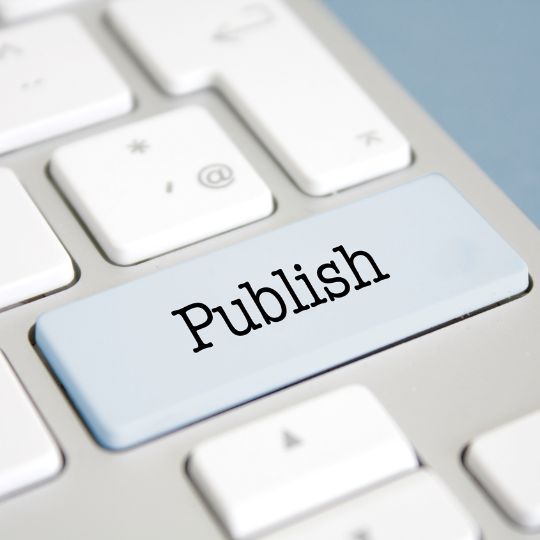Knowing When Your Manuscript is Ready: Insights from Bestselling Authors
This is a summary article that broadly covers a complex topic – for more specific advice, please ask inside the Colony.
Submitting your manuscript to a literary agency or publisher is an exciting step towards becoming a published author. However, determining when your manuscript is truly ready for submission requires careful evaluation. Many contemporary bestselling authors have shared their thoughts on how to assess the readiness of a manuscript. As well, there are numerous sets of rules and guidelines devised by publishers, agents, writing courses and editors. Here is a short list of matters to consider before you send yours, because it’s true that you increase your chances of getting noticed when your submission is polished.
- Master the Craft: Before you submit a manuscript, you need to hone your writing skills. There is a lot to learn as you begin to master the craft. Bestselling authors often emphasize the importance of continual improvement and refining of one’s writing abilities. A useful habit is to study the works of successful authors in your genre. You will soon be able to identify their writing techniques and literary devices. Their approaches to character development, pacing, and plot structure also will become clear. As you build an understanding of what works in published novels, you can look afresh at your own manuscript to see what might need to be amended.
- Seek Objective Feedback: Before you can say your manuscript is ready for submission, it is crucial to obtain objective feedback on it. Published authors know the value of having trusted critique partners or beta readers who can provide constructive criticism. Honest feedback from others can help you identify aspects that require improvement. Make sure you welcome these comments! Every manuscript can be made better in some fashion. Note the perspective of each critique and then refine your manuscript in a way that answers the feedback you have received.
- Revise and Edit: The writing process is comprised of at least fifty percent revision and editing. Award-winning authors, such as Margaret Atwood and Stephen King, recognize the importance of revision and accept the many rounds of editing needed to polish a manuscript. They know that errors can distract readers and diminish the impact of one’s work. Revise for clarity, coherence, and consistency in both the narrative and the voice of your story. Pay attention to grammar, spelling, and punctuation. Read your story aloud, with your red pen at the ready, to discover awkward phrasing or incomplete sentences. If you wish, seek the assistance of a professional editor to provide a final read-through of your manuscript before you submit it.
- Ensure Strong Characterization: Well-developed and relatable characters are the backbone of a compelling story. Authors such as George R.R. Martin or J.K. Rowling excel in creating unforgettable characters. You can study the techniques published writers use to create complex characters who develop over the course of the story. Strong characters have issues, a powerful motive, face insurmountable problems and experience personal transformation. When you consider the characters you have devised, ask yourself if readers will connect with them emotionally. Your characters are well-drawn when the reader truly cares what happens to them.
- Craft a Captivating Opening: The first paragraphs of your manuscript must capture the attention of the reader, including literary agents and publishers. Authors like Gillian Flynn or Dan Brown stress the importance of a gripping opening that hooks readers from the start. The opening two pages of your manuscript must make the reader want to read more. To succeed at this, you must introduce your main character, define the story’s premise, establish the voice, the setting and the situation… all in an action-packed scene and in very few words.
- Evaluate Story Structure: The structure of your story is like scaffolding to a building. It is a framework constructed of the big events and changes that occur during the story. The other components of the story fit around and into this framework, creating what might be thought of as texture. Action scenes, dialogue, and short descriptive passages, for instance, can jostle for position with moments of introspection or comic relief. These create texture but also function to move the story along its structural framework to a satisfying, dynamic conclusion. Analyze the structure of your story to ensure the framework is intact and sturdy. Make sure the braces, joins and crossings of the framework represent the story’s major events and turning points. Renowned authors like Neil Gaiman or Chimamanda Ngozi Adichie, use story structure to maintain tension and pacing throughout the manuscript. Evaluate the placement and impact of major events before you submit your manuscript.
- Research Literary Agents and Publishers: It is always a good idea to research which literary agents and publishers specialize in your genre. Familiarize yourself with their submission guidelines and tailor your submission package accordingly. Bestselling authors, such as John Grisham or Nora Roberts, have stressed the importance of finding the right agent or publisher, one who aligns with your writing style and vision. When you carefully target the appropriate professionals, you increase the likelihood of your submission getting a successful reading.
Your manuscript is ready for submission only after careful consideration. Don’t be tempted to bypass this process just because you have finished writing your story. As most accomplished authors will agree, it is best to assess your manuscript’s readiness for submission to a literary agency or publisher. With dedication and a commitment to excellence, these key steps will help to increase your chances of securing representation and the start of a successful writing career.
This is a broad overview of a dynamic topic: for specific help and encouragement at every stage of your writing life, join the Colony!





